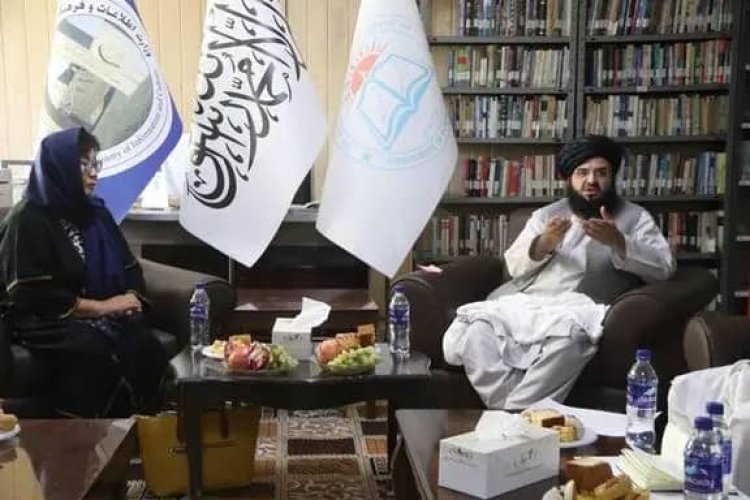UNAMA Chief: over five million Afghan children lack access to education

Roza Otunbayeva, the head of the United Nations Assistance Mission in Afghanistan (UNAMA), revealed in a recent meeting with Taliban officials that more than five million children in Afghanistan are currently without access to education. The alarming figure underscores the deepening crisis in Afghanistan’s education system, which has been severely affected by the Taliban’s policies.
On Sunday, October 20, Otunbayeva met with Atiqullah Azizi, the Taliban’s Deputy Minister of Information and Culture, to discuss literacy and education issues. During the meeting, she emphasized UNAMA’s readiness to support Afghanistan in areas such as literacy programs, public libraries, and cultural conservatories. Otunbayeva also announced plans to launch a national campaign to promote reading across the country, in a bid to counter the growing literacy gap.
Despite these efforts, Afghanistan’s education sector faces significant challenges, particularly with the Taliban’s ongoing ban on girls' education beyond the sixth grade. For more than three years, girls have been barred from attending secondary schools and universities, further worsening the education crisis. This policy, coupled with widespread poverty and instability, has left millions of Afghan children—especially girls—without access to basic schooling.
International organizations, including the UN, have repeatedly called on the Taliban to reverse these restrictions and prioritize access to education for all children, regardless of gender. However, the Taliban has shown little indication of changing its stance, contributing to a growing concern over the long-term impact on Afghanistan's future generations.
The lack of access to education is not only depriving Afghan children of their right to learn but also threatening the country’s development prospects. The international community, led by UNAMA, continues to push for solutions to address the educational void, but the situation remains dire for millions of children in Afghanistan.
